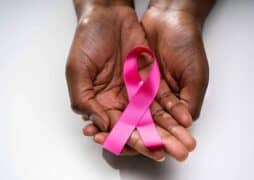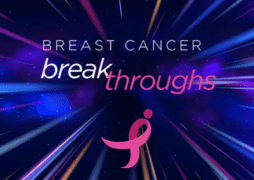October is National Breast Cancer Awareness Month. The month is not just about making people aware of metastatic breast cancer and celebrating survivors, it is also about taking action so we can improve the lives of people living with breast cancer.
Despite all our advances, about 42,000 people in the U.S. will die from breast cancer this year alone – and almost all from metastatic breast cancer (MBC). In addition, there are an estimated 168,000 women and an unknown number of men in the U.S. living with metastatic breast cancer today. They are mothers, fathers, daughters, brothers, grandmothers, grandfathers and family members, who just want more time with the people they love.
Unfortunately, we don’t yet have the cures for metastatic breast cancer.
Also called stage IV breast cancer, MBC is the most advanced stage of the disease, where tumor cells have spread (or metastasized) to other parts of the body, most commonly the bones, liver, lungs and brain. Anyone can be diagnosed with MBC. Less than 10 percent of people diagnosed with MBC have never had breast cancer before, while the majority of people affected have previously gone through treatment for early stage breast cancer.
Current treatment focuses on preventing MBC from spreading and helping patients live longer, better lives. Yet everyone living with MBC knows, that at some point, the treatment they are on will fail and their cancer will progress. That’s why research is so important; it is the only thing that will lead to more and better treatments, and eventually cures.
What can you do to help someone living with MBC?
Everyone can make a difference in the life of someone with the disease.
1. Make a donation to help fund research
Research is needed to better understand the disease, and to develop more and better treatment options, which will eventually lead to the cures. Even if you can only make a small donation, every dollar helps. In the 1970s, only 10% of women survived for five years after their diagnosis of MBC. Today, because of research that has developed new and more effective treatments, approximately 25% of patients are living five years or more after their diagnosis.
The goals of MBC research include:
- Identifying the genes and processes that cause breast cancer cells to metastasize.
- Developing and testing new therapies to both prevent and treat metastatic breast cancer.
- Discovering new methods for predicting the risk of metastasis or detecting metastasis early, using urine or blood tests or body scans.
Donate what you can today at Susan G. Komen.
2. Contact your Member of Congress
Call or write your Member of Congress to urge passage of legislation that will make an immediate difference in the lives of people living with MBC. Insist that they cosponsor the Metastatic Breast Cancer Access to Care Act (H.R.2178/S.1374) to make Social Security Disability Insurance and Medicare benefits available right away to patients. They cannot afford to wait out the current months-long wait periods to receive these benefits.
Also urge lawmakers to support the Cancer Drug Parity Act (H.R.1730/S.741) so that the cost of chemotherapy drugs taken orally is covered the same way as chemotherapy received through an IV at a treatment facility. Medications taken orally are often more expensive for patients, making them unaffordable for many. But there are benefits to receiving oral therapies, including the ability to take them at home, and they are often the only option available for people living with MBC.
Whether you know someone who has been diagnosed with metastatic breast cancer or not, taking action today will help those who are living with the disease right now.
To learn more about metastatic breast cancer research, treatment and resources, visit Susan G. Komen.
*Komen’s Metastatic Breast Cancer Awareness Campaign has been made possible by support from Eli Lilly.




